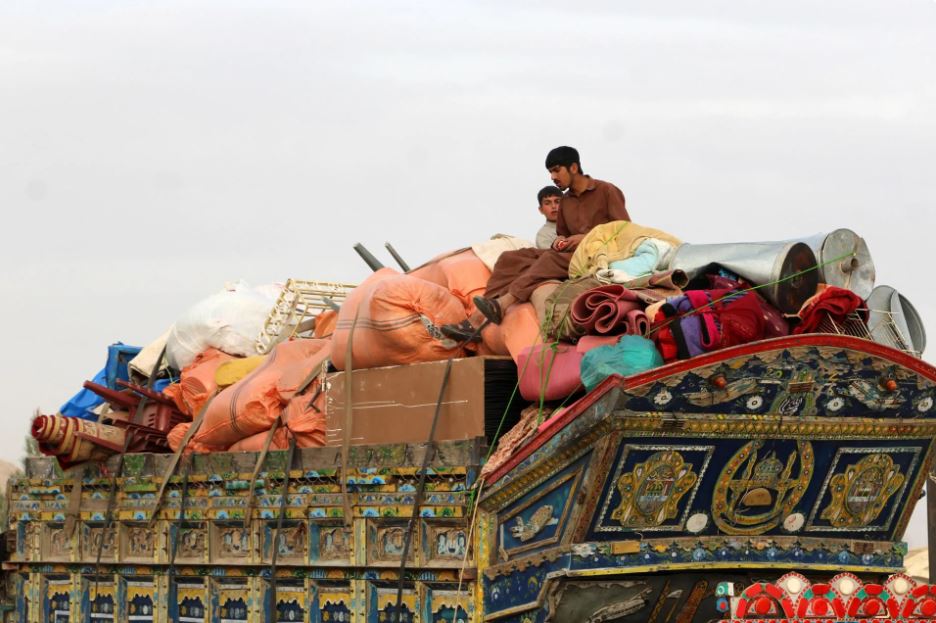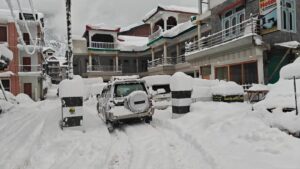TORKHAM — The wind here still smells of dust and diesel, the border gates groan open and shut like a restless heart, and on most days, the only thing louder than the trucks are the silences people carry.
But lately, something has shifted.
In this high-stakes corridor between Pakistan and Afghanistan, the Afghan Repatriation Efforts have quietly reshaped the rhythm of life. Not with loud declarations, but with the slow turning of a page — one heavy with decades of displacement, love, loss, and survival.
At the center of this evolving story is Hafiz Mohibullah Shakir, Afghanistan’s Consul General in Peshawar. His words carry the weight of history, but his tone is that of a man trying to soften the landing. “We’re not asking for miracles,” he says, seated in a modest consulate room in Peshawar “We’re asking for a return home — one built on dignity, planning, and peace.”
Read more: Pakistan Tightens Grip as Afghan Refugees Deadline looms

Behind that simplicity is a complex machinery: government-led commissions, newly constructed camps, promises of basic services, and chartered buses poised to carry away decades of Afghan lives tucked inside Pakistan’s heart.
But home is never just a place. For many Afghans in Pakistan, it’s become a blur — part memory, part myth. There are barbers in Rawalpindi who’ve shaved three generations of faces. Bakers in Quetta whose children speak fluent Urdu and know more about cricket than kites. Brides from Peshawar, husbands from Kabul. Entire neighborhoods where Afghan and Pakistani stories have tangled like roots underground.
Now, those roots are being asked to unthread.
“Pakistan gave us refuge, and much more,” Mohibullah says, almost as an aside. “But we’ve changed, too. Afghanistan is no longer under occupation. We’ve taken charge of our destiny. It’s time our people do the same.”
It’s a pitch both logical and emotional. But repatriation — like migration — doesn’t always listen to reason. The Afghan Repatriation Efforts are unfolding in homes where children clutch schoolbooks in Urdu, where fathers run businesses worth billions of rupees, and where mothers pack suitcases unsure if they’re moving forward or leaving something behind.
Read More: Afghan Refugees in Pakistan: Uncertainty, Fear, and an Uncertain Future

The legal side is clear-cut. Refugees don’t inherit citizenship with time. Belonging, in modern states, must be stamped. But what of marriages not recognized by paper? What of Afghan men raising Pakistani-born daughters? Already, such cases are landing before the Peshawar High Court, where judges must weigh love against law, and permanence against policy. For those not ready to leave, Pakistan’s message is tempered but firm: apply for visas, regularize your stay, don’t linger in limbo.
Still, limbo is a generous word for the emotional calculus many Afghan families are now forced to do. Some speak of hope — a real chance to rebuild, to contribute, to finally belong somewhere fully. Others speak of fear — of starting over in a homeland that feels like a stranger.
And yet, something rare is unfolding.
For once, Afghanistan and Pakistan are moving in concert, not conflict. The coordination is quiet, but present. Officials on both sides speak the same language — of order, not panic; of process, not punishment.
“We’re closing a chapter,” says one senior Pakistani official, requesting anonymity. “But we must do so gently. This isn’t an eviction. It’s a farewell. And goodbyes deserve grace.”
Read More: Afghan Citizens Deportation to Begin from April 1

What’s left behind is more than property. It’s the smell of tandoor bread in Afghan enclaves, the echo of Dari lullabies behind Urdu walls, the makeshift mosques where entire generations learned to pray in exile. The Afghan Repatriation Efforts are not just about movement. They’re about memory — and what it means to carry it across a border, without letting it break you.
In the end, perhaps that’s the truest part of going home: knowing that even if the journey is hard, the belonging must be earned again — one step, one prayer, one story at a time.
And at the gates of Torkham, where trucks line up like pilgrims and eyes scan mountains for omens, one truth holds steady: departures are easy to announce. It’s the returns that carry the weight.












